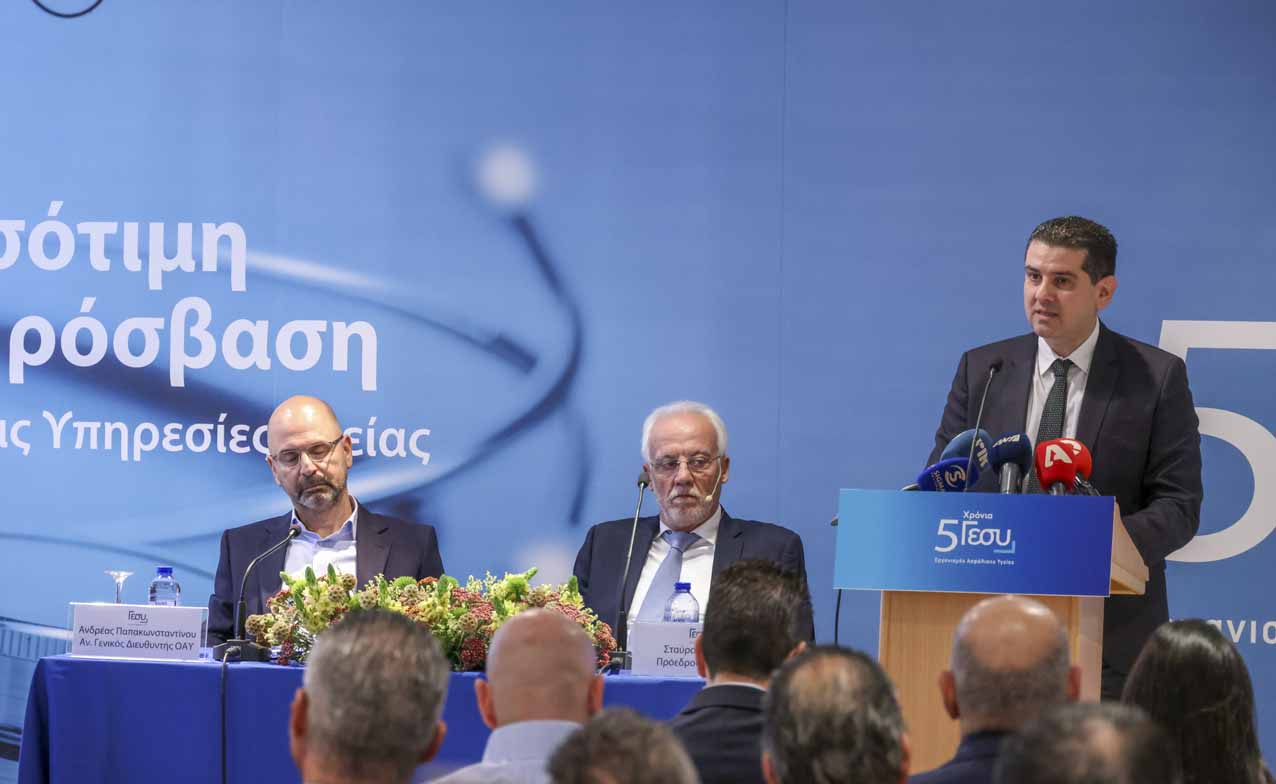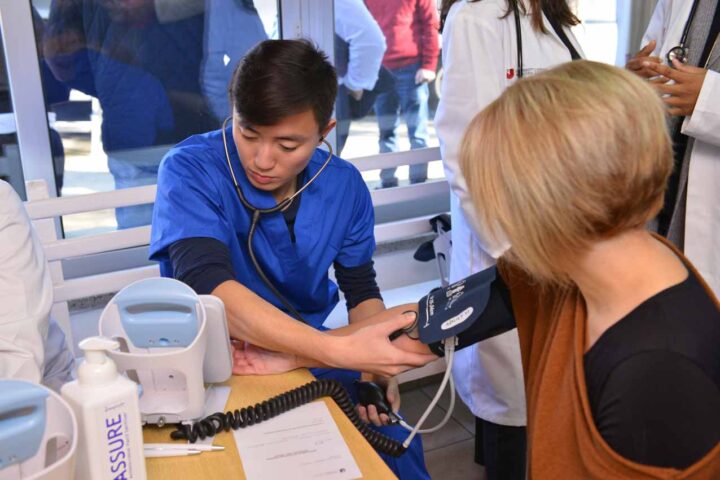Five years since the General Health System was established, the public seems to show increased confidence in the system, some 60% of beneficiaries visited a specialist in the past year and, despite harsh criticism, the GHS remains financially viable for the next seven years.
According to data provided by the Health Insurance Organisation, operator of the GHS, the second actuarial study conducted by the International Labour Organisation (ILO) earlier this year showed that, in current terms, the GHS is financially viable until 2031.
The GHS fund’s reserves are “satisfactory” and currently stand at €590 mln, which corresponds to four months’ of expenses.
Speaking at an event to mark the GHS five-year milestone, Health Minister Michalis Damianos, said that the implementation of the system from 2019 is one of the most important social reforms in Cyprus, which remains flexible and on a trajectory of continuous development.
“The vision to ensure a high level of health for citizens and timely and equal access to health services is being implemented at a steady pace despite the adverse conditions we had to manage due to the recent pandemic crisis,” Damianou said.
“Following the introduction of the GHS, unfulfilled medical care needs for low- and high-income households were at extremely low levels for 2022 – below 1%. Therefore, with the previous reforms, the ability of the GHS to respond to the needs of patients increased”, he said.
Referring to a recent survey by IMR/University of Nicosia on the GHS progress during the past five years, the Minister of Health said that more than 92% of respondents responded that the system has improved the quality of health services provided and their quality of life, reduced the cost of access to medical care (62%), and provided an increase in choices regarding health service providers.
“In order to ensure the viability of the GHS, there should also be the necessary oversight of the system, both in terms of avoiding abuse and ensuring the quality of services provided,” Damianou added.
“Having completed the first five years of operation of the GHS, we are now in a position to inaugurate a new period, in the formulation of health policies, with documented and appropriate interventions, based on close cooperation between the Ministry of Health, the Health Insurance Organisation and providers, for the benefit of the citizens, ensuring the long-term optimisation of the health system”, he concluded.
HIO Chairman Stavros Michael said that at present there are 969,722 registered beneficiaries, 807,331 beneficiaries have visited their personal doctors, 637,536 have visited specialist doctors, 319,259 have been to radiology or diagnostic centres, 501,035 have undergone laboratory tests and 318,990 have visited dentists.
In all, 698,650 beneficiaries have been prescribed medication and a further 83,166 have had operations.
Also, the HIO has imposed administrative and other fines in 70 cases, with fines reaching up to €70,000, it has carried out 600 investigations which are expected to be concluded by the end of the year, and 11 contracts have been suspended, while the system has also rejected some (eO 10 mln in claims.
During the past year, four hospitals have been added to the GHS, two accident and emergency (A&E) departments, two more day care centres, as well as at-home palliative care, and the addition of speech therapists, clinical dieticians and general nursing, podiatrists, 45 innovative drugs and 78 new therapies.
Andreas Papaconstantinou, the deputy Director General of the HIO, said that plans are underway to reduce waiting times at specialists physicians, while the strategic plan for 2024-2026 will be published “in a few weeks”.
Looking ahead, the four main pillars are quality health care services, enrichment of the existing health care services, financial viability of the GHS, and continuous modernisation and optimisation.
One of the next steps includes a new website providing a “Patient’s Guide” and online assistance to access GHS services.










